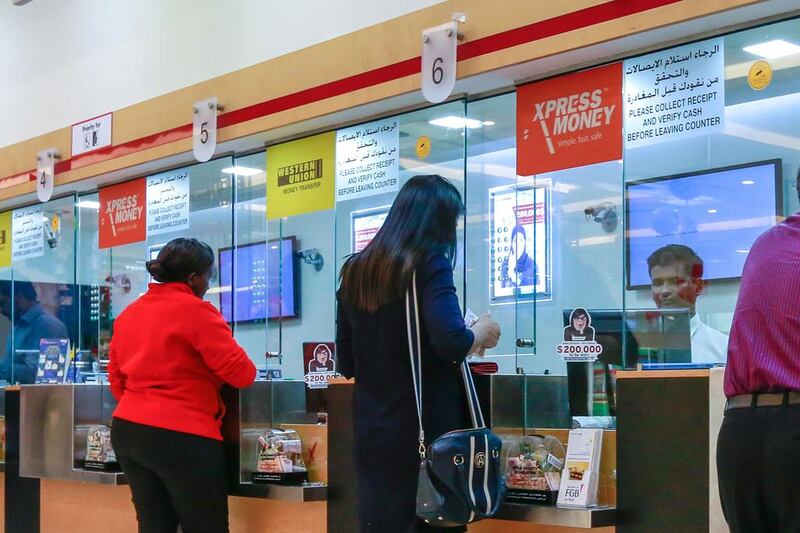Xpress Money, one of the world’s largest foreign exchange retailers, is turning to Facebook and Twitter to help customers send money overseas.
It comes as the long-standing business models of traditional financial intermediaries such as banks and exchange houses come under pressure from disrupters.
These include Bitcoin and other digital currencies, as well as blockchain technology that allows transfers to be completed without using the traditional correspondence banks.
The service, Xopo, will be available initially in the United Kingdom and subsequently in markets including the United States, Canada and Australia.
The app, a venture between Xpress Money and fastacash, a payment solution provider, may also one day be available in the UAE, said Sudhesh Giriyan, the chief operating officer of Xpress Money, in Abu Dhabi.
The app was unveiled at the end of October at Money 20/20, a global conference in Las Vegas, and will be available on devices running Android and iOS operating systems in two weeks time to UK users, Mr Giriyan said.
“It’s a world’s first ever social mobile money transfer app,” he added. “When a customer does a transaction on WhatsApp, I pick up money from my account and I ask you if you want it in cash or your account and, depending on the option you choose, I will send it to your account.”
In the UAE, exchange houses are also facing increased competition from banks, that up until now have not taken the remitting business seriously because the margins aren’t as attractive as those that they make on credit cards and loans. As competition among banks intensifies, however, banks are also beefing up their game to offer customers the full suite of financial services and to get a piece of an ever-growing pile of money being sent back home.
About $18 billion is sent home by workers in the UAE each year, according to the World Bank. More than half of the remittances in the UAE go to Asian countries such as India, Pakistan and the Philippines.
Beyond Asia, the UK, Australia and Canada are among top destinations.
“Banks have not played a constructive role in remittances for many years,” said Mr Giriyan. “They shied away but now, looking at the large size of the pie, they are trying to compete with the exchange houses. But we have an advantage because we have built a network over a period of time.”
Banks, however, are starting to take note and are adapting technologies such as blockchain that allows those using it to send funds to each other almost instantly without having to rely on middlemen. They are also partnering up with exchange houses, Mr Giriyan said.
Xpress Money is not alone in recognising the importance of harnessing technology as exchange houses will need to transform to maintain profit growth and not rely solely on the brick-and-mortar model that attracts most guest workers in the UAE.
UAE Exchange, another big player in global remitting, has said its is forging ahead with a plan to offer its services outside its branches through digital channels, such as the internet and mobile phones.
As a result of these changes, UAE residents are likely to start seeing vast improvements in the speed and cost of transactions over the next year, analysts say.
mkassem@thenational.ae
Follow The National's Business section on Twitter





